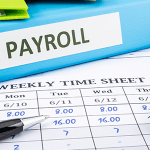Working as a police officer can be an incredibly rewarding experience as you’ll essentially be working to protect, serve, guide, and safeguard the public, whilst maintaining the law and preventing/investigating crimes.
Yet how can you get into this career? What qualifications and experience do you need to get started?
Your entry options
Traditional route:
It is still possible for you to contact the police force directly and follow the Initial Police Learning and Development Programme (IPLDP), before completing a two-year probation and becoming a police constable.
Admittedly, the IPLDP route is being phased out – making it possible for graduates and non-graduates to pursue this role – however, the College of Policing is in the process of creating a new system of entry that is based on the policing education qualifications framework (PEQF). This new system has been designed to reflect modern policing techniques and the use of digital data during investigations.
Degree route:
If you are serious about joining the police force then it is preferred that you have a degree or that you are prepared to study for a degree or an apprenticeship. If you have completed a degree in any subject, then you can follow the work-based program which is supported by off-the-job learning. This path takes two years to complete – where you’ll essentially be on probation the whole time – before you progress onto a Graduate Diploma in Professional Policing Practice.
Alternatively, if you haven’t completed a degree yet, you can embark on a three-year BSc Professional Policing Practice programme. This should be done before applying to the police force and will ensure a shorter period of on-the-job training. NOTE: you will need to fund this degree yourself.
Apprenticeship route:
The Police Constable Degree Apprenticeship (PCDA) is a three-year Level 3 degree apprenticeship that comprises of both on and off-the-job training. Similarly to other apprenticeships – you can earn while you learn and upon completion, you will not only have done your probation as a police constable, but you will have also achieved the BSc Professional Policing Practice qualification.
Now which of these routes you pursue is up to you; however, by the end, you’ll have a degree that will enable you to successfully apply for a place on the police force.
What additional qualifications can/should you get?
The path described above is the preferred course of action; however, adding additional relevant qualifications to your arsenal will improve your odds and make your application even more appealing.
The key to getting it right is finding courses that won’t impede your ability to complete your apprenticeship or degree.
Online courses in criminology, forensics, criminal profiling, and psychology could all prove beneficial to your career as a police officer:
- Criminology – this advanced diploma has been designed to increase student knowledge of the Justice system; how it works, and how it is used to detect and prevent future crimes.
- Forensics – this course delves into forensics and its use to gather and interpret evidence.
- Forensic Psychology – this course explores the assessment and treatment of criminal behaviour. This includes the use of profiling and forensics during investigations.
- Psychology of Criminal profiling – this specialist Level 3 online diploma examines why people commit crimes and examines the tools law enforcement agencies use to profile criminals and solve crimes.
- Criminal Psychology – during this online Level 4 course students are shown how psychology is used to detect and prevent crimes, making it highly beneficial to those looking to become police officers.
- Psychology – this course delves into the human mind assessing body language, behavior, and our influences/triggers. This course could prove useful when helping families to deal with grief or when conducting interviews at crime scenes.
Each of these online courses would prove a valuable addition to your qualifications and the path you carve as a police officer. To learn more about how they work, click here.
Types of Police Forces
With 43 geographical police forces in England and Wales, you might be interested to know that there are also four special police forces which in themselves may require additional qualifications for you to apply for them.
1. British Transport Police (BTP): they are responsible for policing the railway network and managing instances/crimes which may occur on the roads or railways. They will also take charge of scenes that occur in these locations, and as such, you may find a qualification in forensic criminology useful (for more details on our online forensics and forensic criminology courses, click here).
2. Civil Nuclear Constabulary (CNC) – their role is to protect civilian nuclear facilities.
3. Ministry of Defence Police (MDP) – they provide security for the UK’s defence assets.
4. National Police Air Service (NPAS) – they supply air support for the police forces of England and Wales e.g. helicopter searches for missing civilians or escaped/escaping criminals.
How to apply to join the police
Whilst you need to possess certain qualifications to apply to the police force, they have also got a list of other requirements which may affect your eligibility. Take the following- you must:
- be 18 years old or older
- be a British citizen, a European Community (EC)/European Economic Area (EEA) citizen, or a foreign national with indefinite leave to remain in the UK without restrictions
- have lived in the UK for the last three years (although there are exemptions, such as if you’ve served abroad with the British armed forces)
- qualify equivalent to A-level; have been a special constable who has been signed off for independent patrol service in the last two years or have served as a police community support officer (PCSO) for 18 months
- have a valid driving license (this is often essential)
- pass medical, eyesight and fitness tests
Likewise, if you have certain criminal convictions, debt problems, are a member of an extreme political group, etc. then these may prevent you from being accepted. In addition, you can’t apply if you’ve had an unsuccessful application to the police force in the last six months.
The application process
There are several stages to the application and recruitment process.
One: you need to complete a police application form. This usually takes around 30 minutes.
Two: you need to attend an assessment centre.
Three: you will be interviewed.
Four: you will need to complete a series of medical and fitness tests to ascertain your health and fitness levels.
Five: you must pass their background and security checks.
Six: you will be asked to undergo additional assessments including a second interview.
NOTE: the application process for each police force may vary slightly, so you must check out their application process. Details for this can be found on their independent websites.
Police Graduate Schemes
Alongside degrees and online courses, there are graduate schemes you can apply for that are designed to recruit and train graduates to become police officers. To be eligible you must be over 18 years old at the time of your application; have a minimum of a 2:2 degree; hold a Level 3 qualification (equivalent to an A-Level) and be new to policing.
These schemes partner with police forces across the country; take two years to complete, and aim to teach students about core policing, communication, and problem-solving skills.
The two main graduate schemes are:
- National Graduate Leadership Programme – this scheme strives to train and transform graduates into leaders with a core focus on neighbourhood policing. Students will get the chance to get up close to issues and tackle resident challenges.
- National Detective Programme – this scheme aims to equip graduates with key policing and investigative skills. They will learn how to solve crimes, become leaders, and become confident communicators and problem-solvers.
To apply for either of these schemes you will need to complete an application form; take an online assessment, and go to a Police assessment centre before finally being offered a position.
Salaries
Most police officers receive a starting salary of £24,780-£31,020 per year depending on their location. This will rise annually as you gain more experience and move up the career ladder.
Alternative jobs
Being a police officer is not the only role you can pursue within the police force. There are several other careers you can try before you take this final step.
Police Community Support Officer (PCSO): PCSOs do not have the same power as police officers; however, they play a key role in neighbourhood policing. For instance, it is their job to – deal with minor offenses; offer early intervention; support police officers; conduct house-to-house inquiries; guard crime scenes and offer crime prevention advice to residents. Starting salaries are usually £19,000 a year, but it can be higher depending on the location. You can apply directly through the police force.
Similar to a police officer, you will need to complete an application form, do an online test, sit through an interview, and complete medical/fitness assessments; however, you don’t need any specific qualifications to apply for the post.
Special Constable: these are volunteer police officers who have the same powers as the regular police. Their shifts are usually only four hours a week and they do a lot of frontline police work. All you need to possess to become a Special Constable is good character; being over 18 years old and being in good health. Similar to the other roles, you will need to fill in an application form, go to an assessment centre, complete a fitness and medical test and pass background checks before you undergo training. NOTE: This job is unpaid, but will offer you valuable work experience.
Other police jobs: there are many supporting roles within the police force including call handlers, front counter personnel, analysts, and librarians.
Conclusion
As you can see, there are many paths you can undertake in your quest to become a police officer. All you need to get started is a strong foundation of qualifications, and you can work your way up this rewarding career ladder.
So if you are interested in becoming a police officer, why not bolster your CV with an online course? Criminology, criminal profiling, forensics, or psychology… each of these courses can strengthen your skillset and make you a better asset to the police force. For more information on online courses, click here.






Comments (0)
Join the conversationCancel Reply